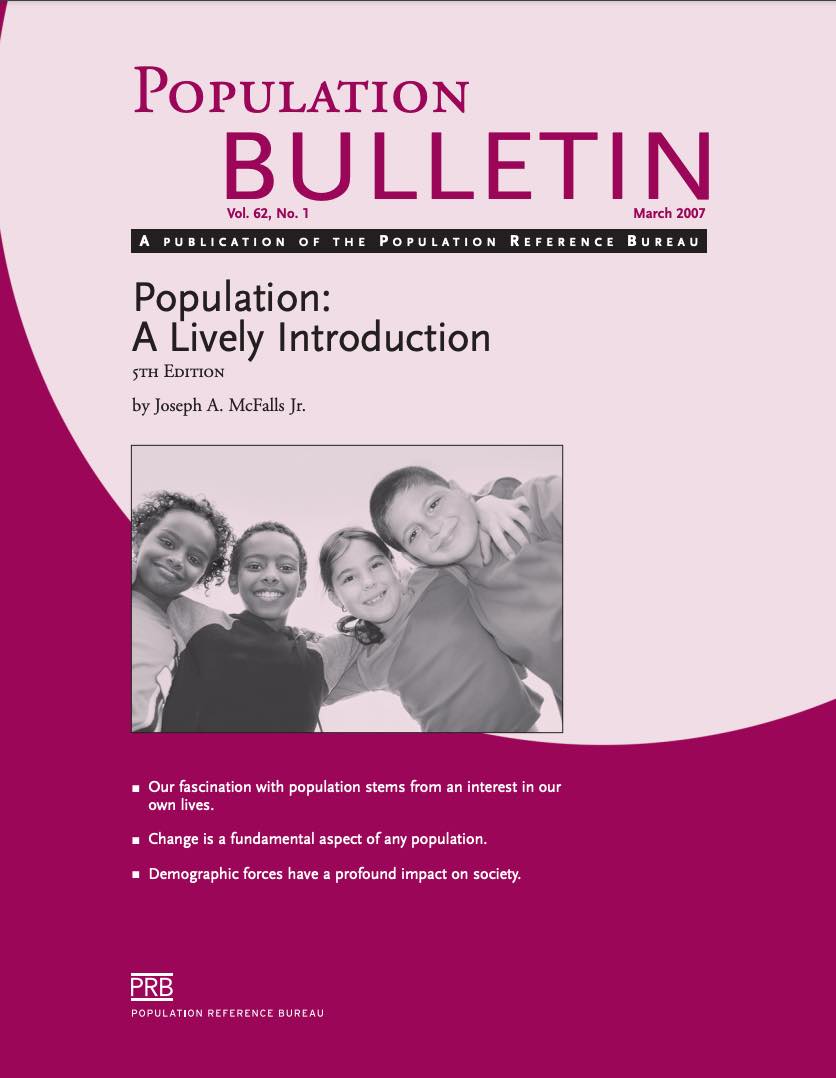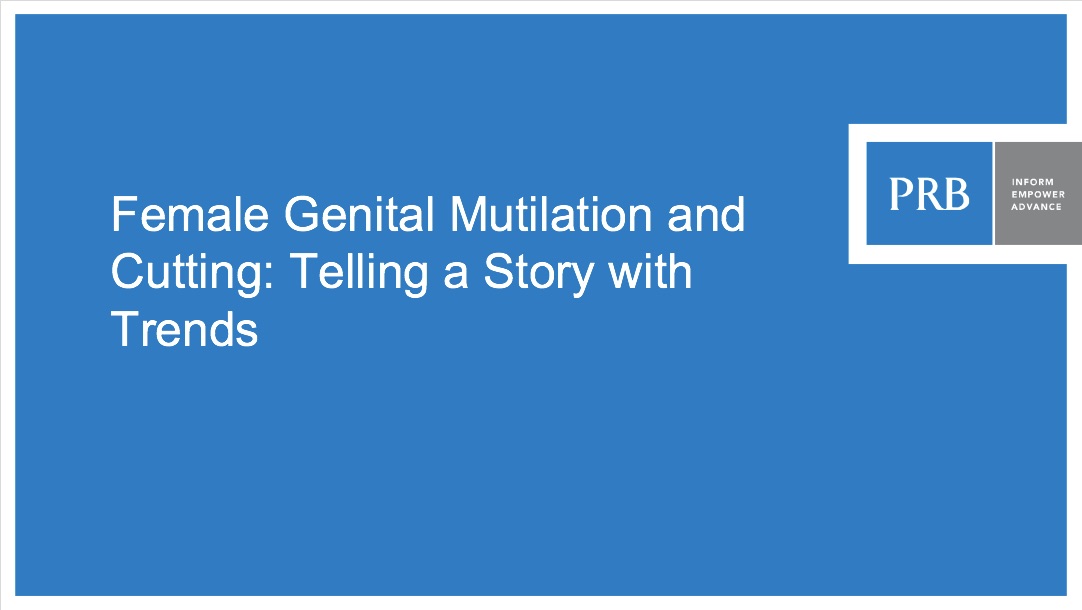Population: A Lively Introduction
(2007)When where you born? How many brothers and sisters did you have? Where did your ancestors live? How long will you live?

(2007)When where you born? How many brothers and sisters did you have? Where did your ancestors live? How long will you live?

(2012) Feb. 6, 2012, marks the ninth commemoration of the International Day of Zero Tolerance to Female Genital Mutilation/Cutting. An estimated 100 million to 140 million girls and women worldwide have undergone female genital mutilation/cutting (FGM/C), and more than 3 million girls are at risk for cutting each year on the African continent alone.
(2013) The United Nations Population Division has just released its comprehensive estimates and projections, World Population Prospects: The 2012 Revision. The results show a larger global population size in 2050, 9.6 billion, up from the 9.3 billion that the UN projected in its 2010 Revision. A major reason for the higher projection is higher fertility (birth rates) in some countries than previously estimated, particularly in Africa. Much of that information comes from recent demographic surveys.

(2012) Feb. 6, 2012, marks the ninth commemoration of the International Day of Zero Tolerance to Female Genital Mutilation/Cutting. An estimated 100 million to 140 million girls and women worldwide have undergone female genital mutilation/cutting (FGM/C), and more than 3 million girls are at risk for cutting each year on the African continent alone.
(2010) In eastern Democratic Republic of Congo (DRC), HEAL Africa provides free health and psychosocial services to survivors of gender-based violence. Jeanne Muliri Kabekatyo ("Mama Muliri") pioneered and leads Heal My People, HEAL Africa's strategic response to gender-based violence.
(2010) Although sharing a land border with Greece and just across the Adriatic Sea from Italy, Albania was socially and politically isolated from the rest of Europe when it emerged from Soviet influence in the early 1990s.
The number of married same-sex couples in the United States has increased dramatically in recent years, as reported in a recent Bulletin on U.S. family change from the Population Reference Bureau.1
(2011) For more than 20 years, since the first data collection in Sudan in 1989, the Demographic and Health Survey (DHS) team at Macro International has been tracking the prevalence of female genital cutting (FGC), also known as female genital mutilation and female circumcision.

Project: Demography and Economics of Aging and Alzheimer’s Disease
The United Nations projects that there will be 366 million older Chinese adults by 2050, which is substantially larger than the current total U.S. population of 331 million.
(2010) Family planning is one of the most cost-effective health interventions in the developing world.